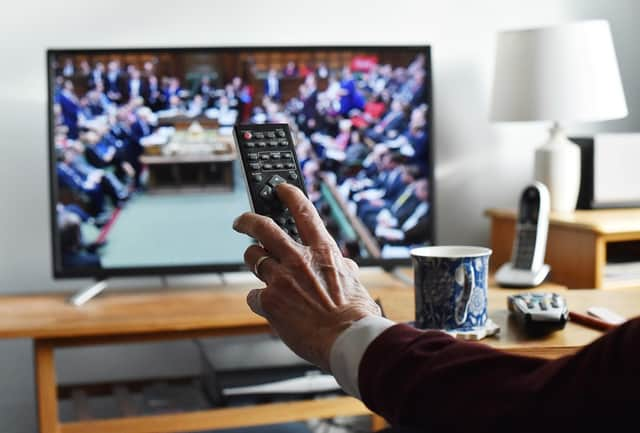TV licence fee price rises from April 1: How to legally avoid paying BBC fee & who can get it for free
and live on Freeview channel 276
This article contains affiliate links. We may earn a small commission on items purchased through this article, but that does not affect our editorial judgement.
The cost of a TV licence in the UK went up from April 1, with people now expected to pay an extra £10.50 after a two year freeze in price increases ended.
If you watch TV in the UK you need to pay for a TV licence fee. The annual amount can either be taken on a monthly, quarterly or yearly payment for watching live TV or anything BBC, including BBC iPlayer and on demand.
Advertisement
Hide AdAdvertisement
Hide AdIt is a criminal offence to watch TV without a valid TV licence, and anyone caught breaking the law could be faced with a fine of £1,000. Here's everything you need to know about how to legally avoid paying and who is eligible to get a TV licence for free.
How much is a TV licence now in the UK?
The yearly cost of a TV licence in the UK is now £169.50, up from £159. The fee increase is in line with inflation, following the end of a two-year pay increase freeze that had been imposed by the government.
How to legally avoid paying BBC TV licence?
Following news about the TV licence increase, TV and streaming expert at Broadband Genie, Alex Tofts, explains that it reflects the difficult circumstances faced by TV providers and how they are "under pressure". Tofts said: "An increase to the licence fee has been on the horizon for some months now. The reality is that the entertainment industry is becoming increasingly difficult to fund, with both terrestrial and pay-TV providers facing the difficult decision to either increase prices, or pump out more adverts."
He continued: "The cost of producing good quality content is increasing, and with the rise of Ultra-HD cinematography, there is even more pressure to create visually appealing programmes and films."
Advertisement
Hide AdAdvertisement
Hide Ad

However, for those who pay a TV licence but only watch on demand services without viewing programmes on BBC iPlayer, you may be able to reduce your monthly outgoings. Toft explains: "There are ways to avoid the licence fee rise for those looking to save the pennies.
"When viewing on demand channels using your broadband connection, it is only the BBC that requires you to pay the charge. Using the likes of Channel 4 On Demand, or ITVX, will allow you to stream for free, provided you are willing to sit through ads." However he adds: "Be careful though, as you need to warn TV Licensing that you do not require one, or else you may be subject to an inspection."
Who can get a TV licence for free?
If you are over the age of 75 you are entitled to a free TV licence. Toft explains: "There are still many pensioners out there that don’t realise this". He adds: "TV can be a lifeline for elderly people, especially during the cold winter months."
According to gov.uk there are also additional discounts available depending on personal circumstances. If you live in eligible residential care home, supported housing or sheltered accommodation you can get a TV licence for £7.50. You must be either retired and over 60 or disabled, your housing manager can check and apply on your behalf. You are also eligible for a 50% discount if you are registered blind or live with someone who is, however the licence must be in the blind person’s name.
Advertisement
Hide AdAdvertisement
Hide AdSarah McCann is a Trends Writer for NationalWorld who specialises in stories around TV, Film and Health. If you liked this article you can follow Sarah on X (Twitter) here. You can also share your thoughts in the comment section below.
Comment Guidelines
National World encourages reader discussion on our stories. User feedback, insights and back-and-forth exchanges add a rich layer of context to reporting. Please review our Community Guidelines before commenting.
